Abstract
Three autistic students were trained to request a specific object from an adult "supplier" with the sentence, "Give me--" and to deliver that object to another adult, the "director." Subsequently, the degree to which the object offered by the supplier controlled the "Give me--" verbal response was assessed by delivering to the student an object other than the one requested. Despite knowing the names of all objects used in the experiment, students accepted and delivered to the director any object offered by the supplier regardless of its match with the requested object. After training to say "That's not it. Give me--" when nonrequested objects were offered, students responded differentially to requested and nonrequested objects, suggesting control of the "Give me--" response by the requested object, a characteristic of a mand. These results generalized across settings and objects. Results are discussed in terms of the training technique to establish manding and the functional analysis of the resulting verbal behavior.
Full text
PDF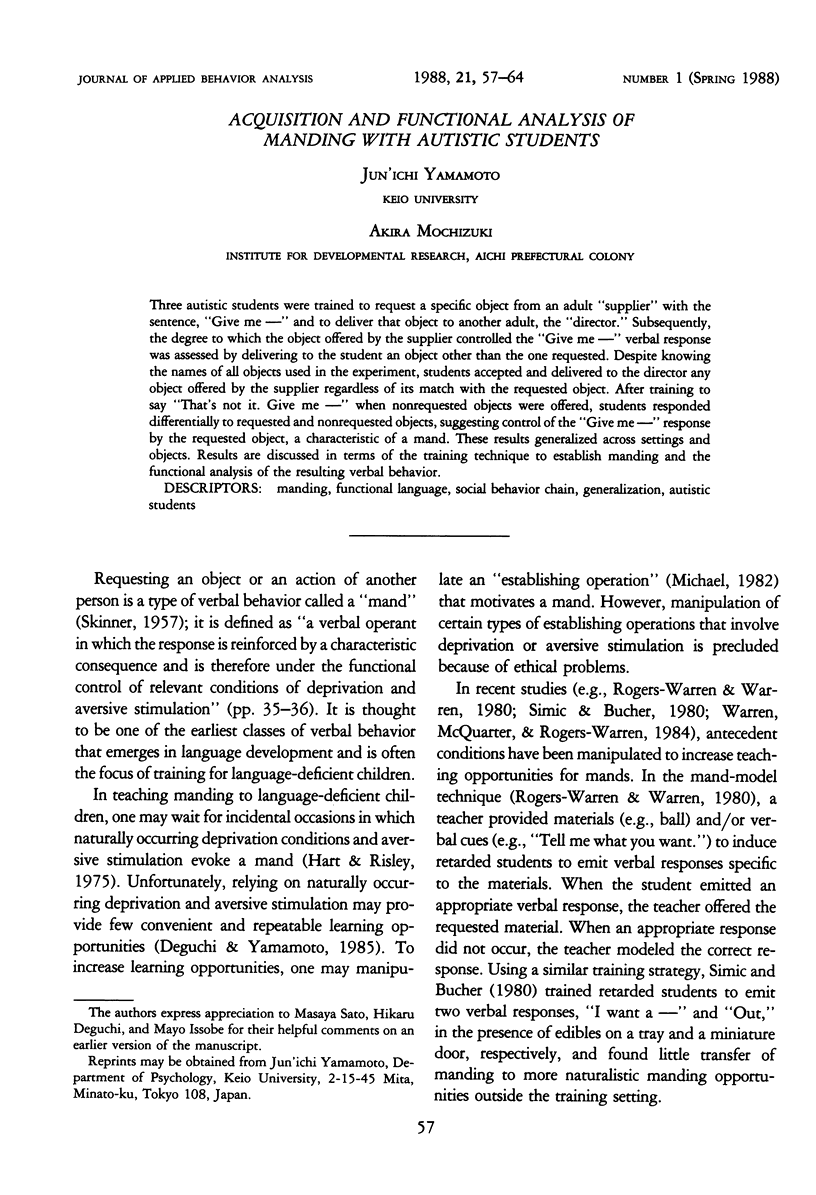
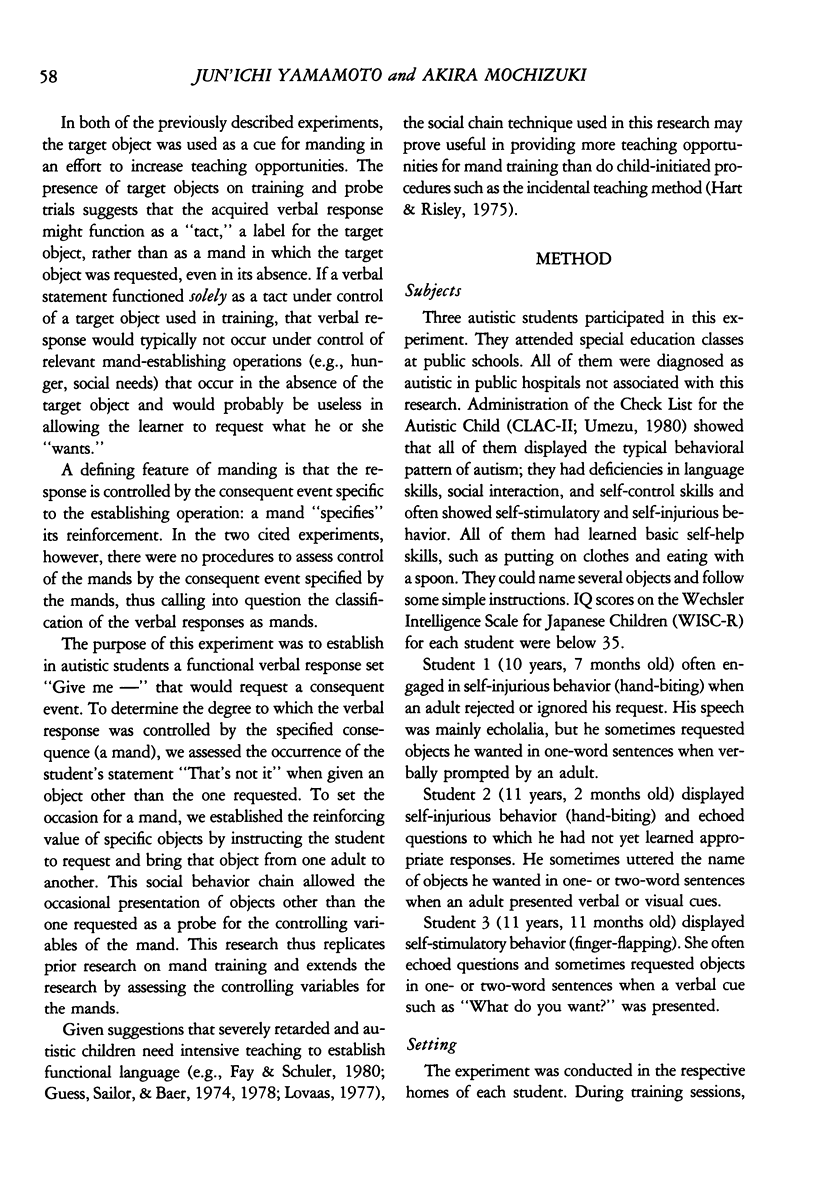
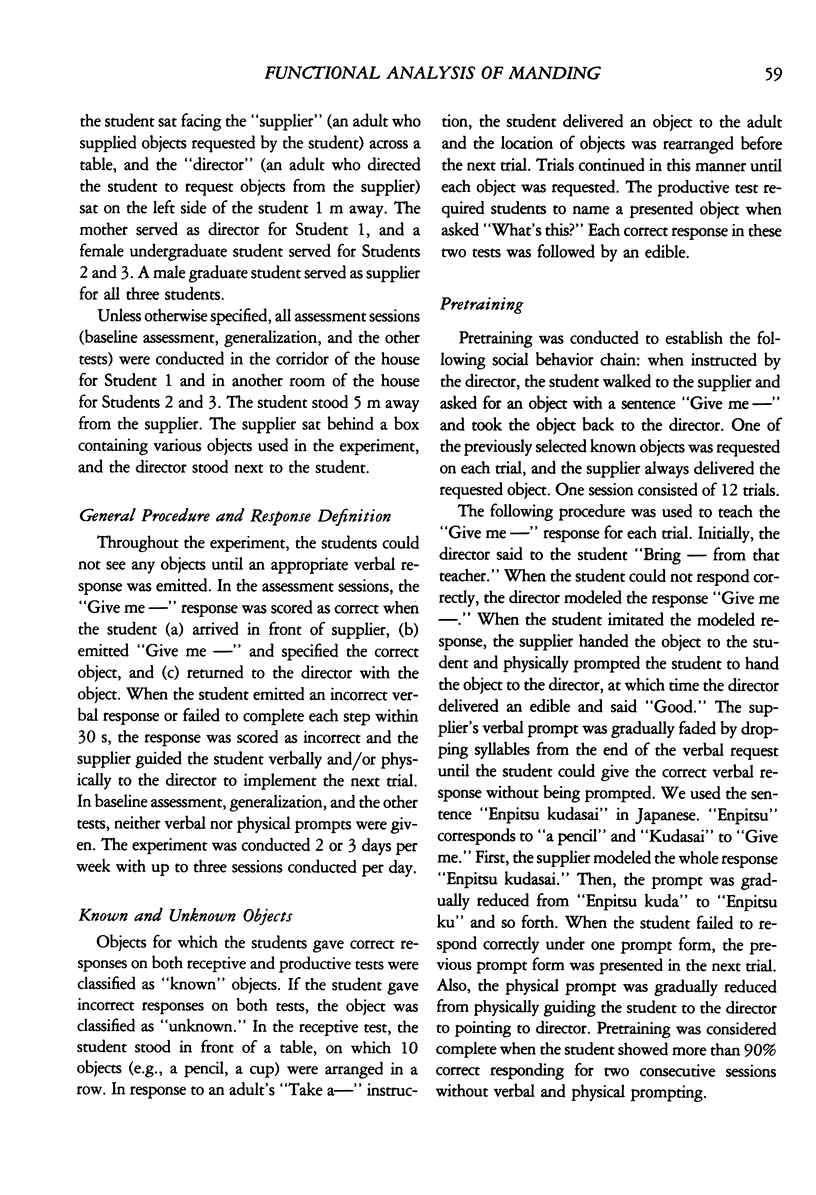
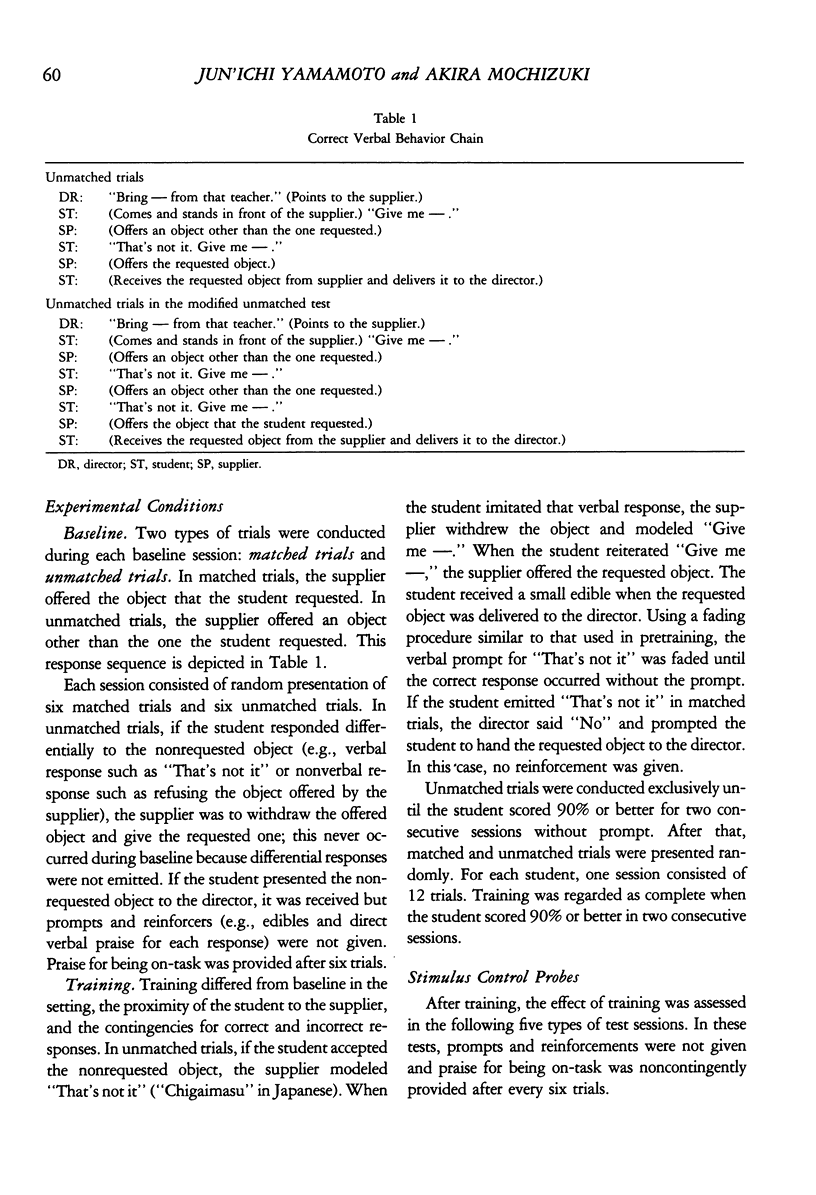
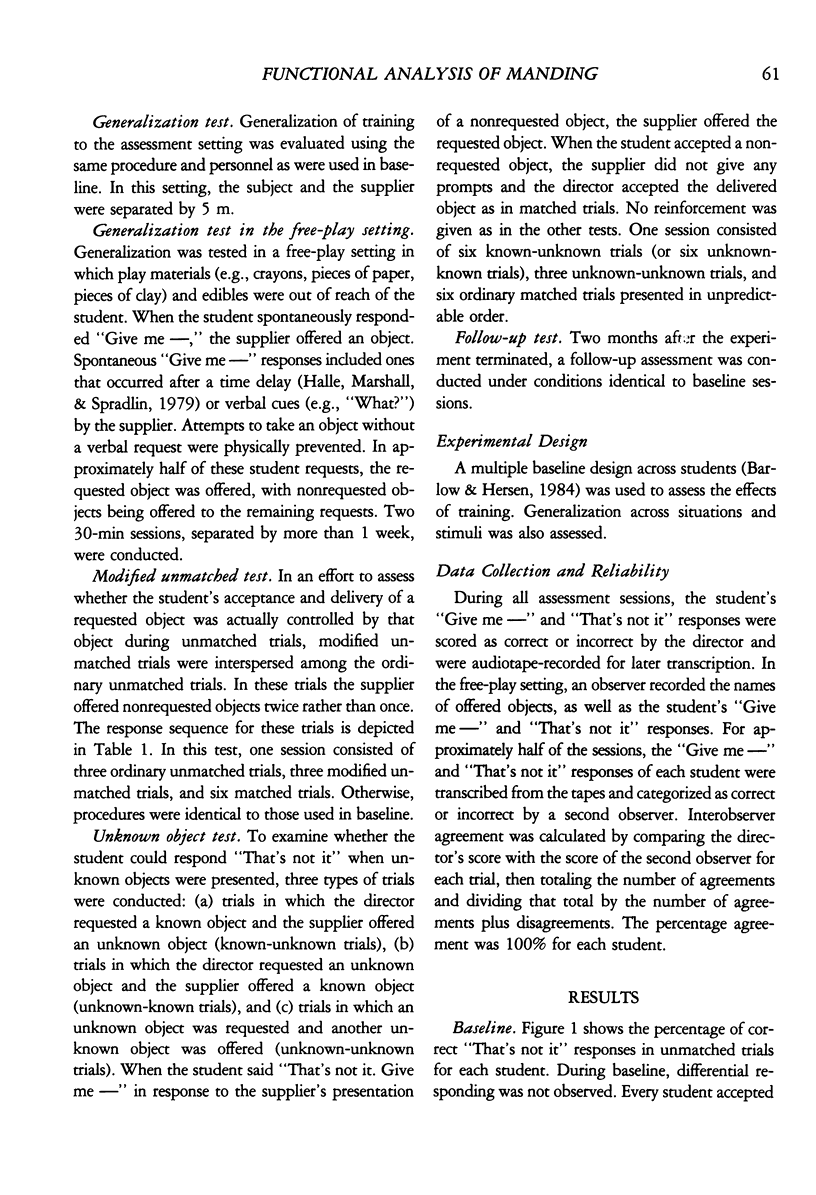
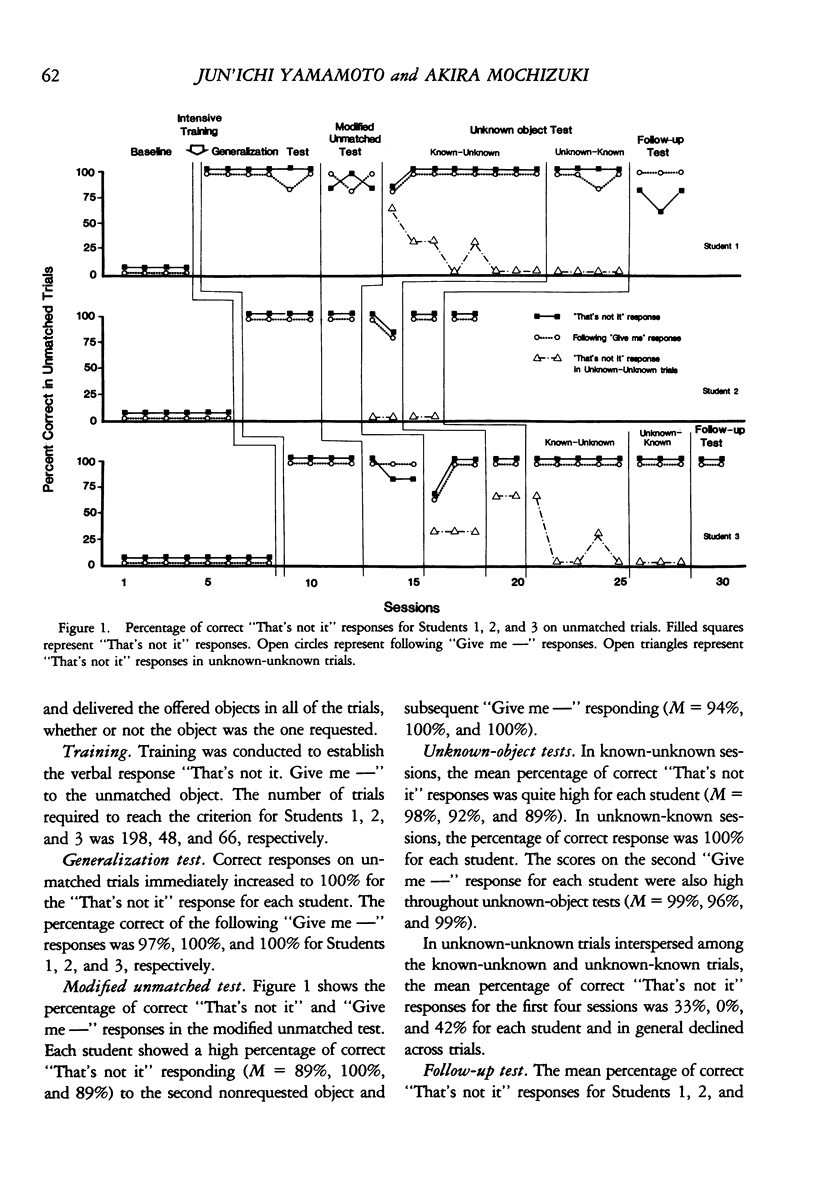
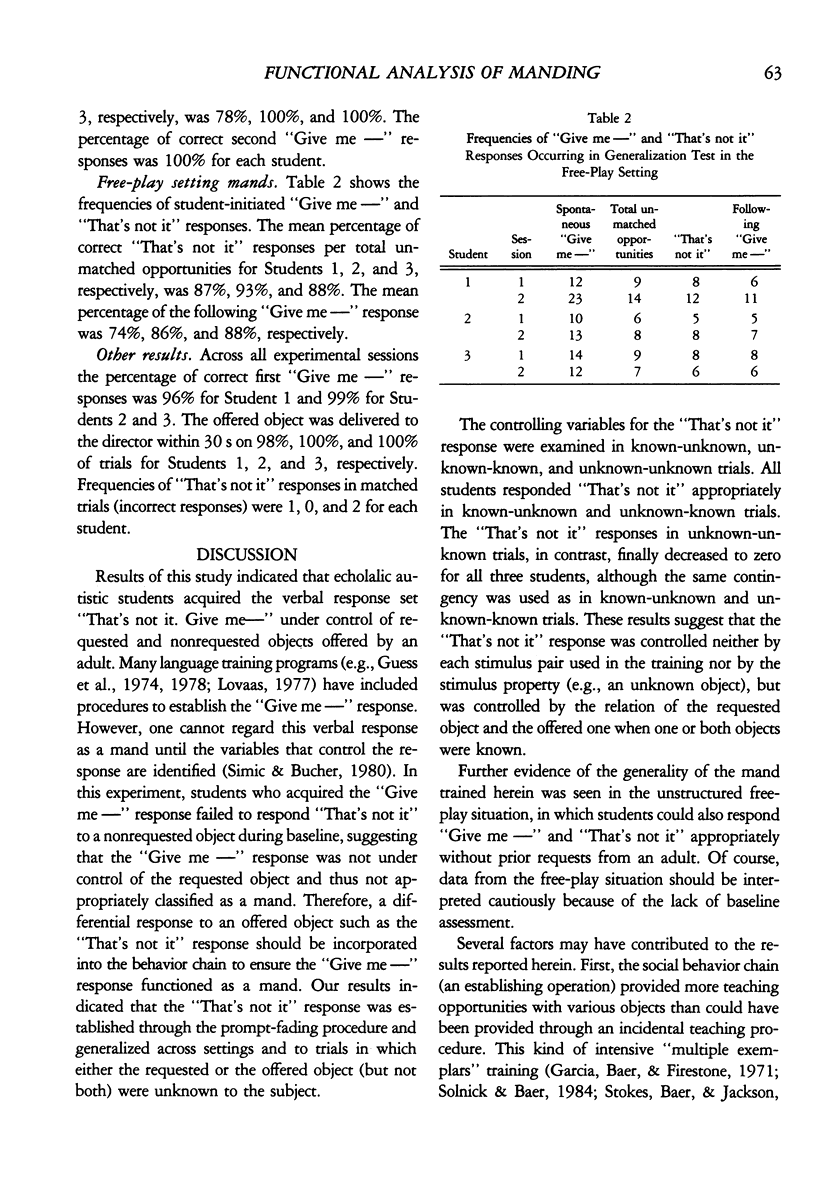
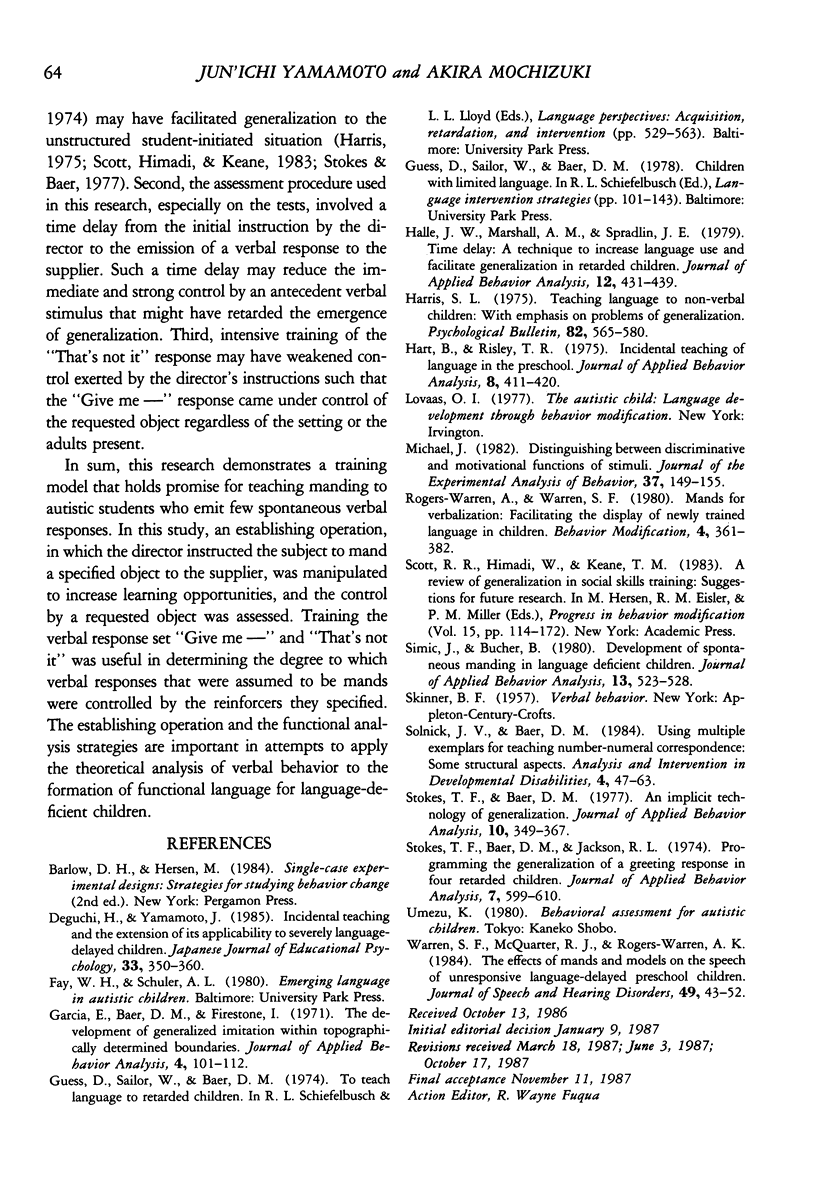
Selected References
These references are in PubMed. This may not be the complete list of references from this article.
- Garcia E., Baer D. M., Firestone I. The development of generalized imitation within topographically determined boundaries. J Appl Behav Anal. 1971 Summer;4(2):101–112. doi: 10.1901/jaba.1971.4-101. [DOI] [PMC free article] [PubMed] [Google Scholar]
- Halle J. W., Marshall A. M., Spradlin J. E. Time delay: a technique to increase language use and facilitate generalization in retarded children. J Appl Behav Anal. 1979 Fall;12(3):431–439. doi: 10.1901/jaba.1979.12-431. [DOI] [PMC free article] [PubMed] [Google Scholar]
- Harris S. L. Teaching language to nonverbal children--with emphasis on problems of generalization. Psychol Bull. 1975 Jul;82(4):565–580. doi: 10.1037/h0076903. [DOI] [PubMed] [Google Scholar]
- Hart B., Risley T. R. Incidental teaching of language in the preschool. J Appl Behav Anal. 1975 Winter;8(4):411–420. doi: 10.1901/jaba.1975.8-411. [DOI] [PMC free article] [PubMed] [Google Scholar]
- Michael J. Distinguishing between discriminative and motivational functions of stimuli. J Exp Anal Behav. 1982 Jan;37(1):149–155. doi: 10.1901/jeab.1982.37-149. [DOI] [PMC free article] [PubMed] [Google Scholar]
- Scott R. R., Himadi W., Keane T. M. A review of generalization in social skills training: suggestions for future research. Prog Behav Modif. 1983;15:113–172. doi: 10.1016/b978-0-12-535615-2.50008-5. [DOI] [PubMed] [Google Scholar]
- Simic J., Bucher B. Development of spontaneous manding in language deficient children. J Appl Behav Anal. 1980 Fall;13(3):523–528. doi: 10.1901/jaba.1980.13-523. [DOI] [PMC free article] [PubMed] [Google Scholar]
- Stokes T. F., Baer D. M. An implicit technology of generalization. J Appl Behav Anal. 1977 Summer;10(2):349–367. doi: 10.1901/jaba.1977.10-349. [DOI] [PMC free article] [PubMed] [Google Scholar]
- Stokes T. F., Baer D. M., Jackson R. L. Programming the generalization of a greeting response in four retarded children. J Appl Behav Anal. 1974 Winter;7(4):599–610. doi: 10.1901/jaba.1974.7-599. [DOI] [PMC free article] [PubMed] [Google Scholar]
- Warren S. F., McQuarter R. J., Rogers-Warren A. K. The effects of mands and models on the speech of unresponsive language-delayed preschool children. J Speech Hear Disord. 1984 Feb;49(1):43–52. doi: 10.1044/jshd.4901.43. [DOI] [PubMed] [Google Scholar]


